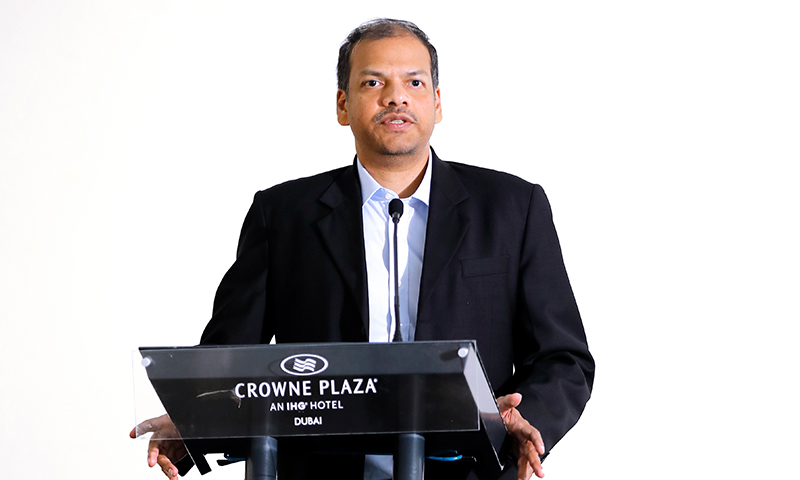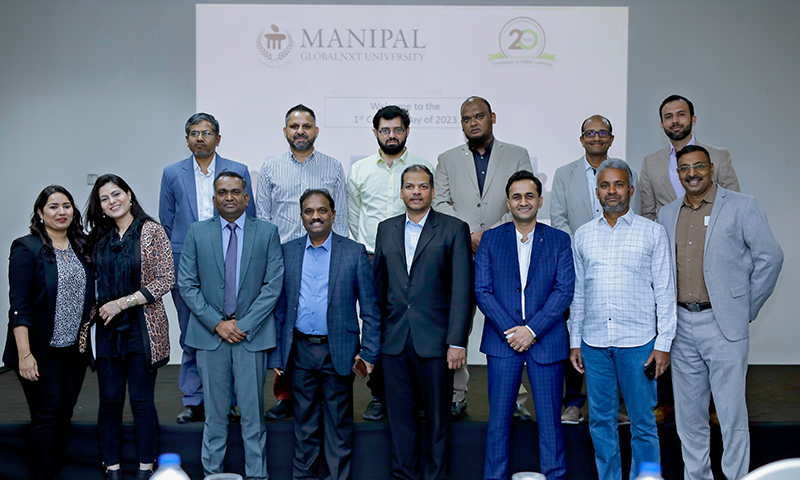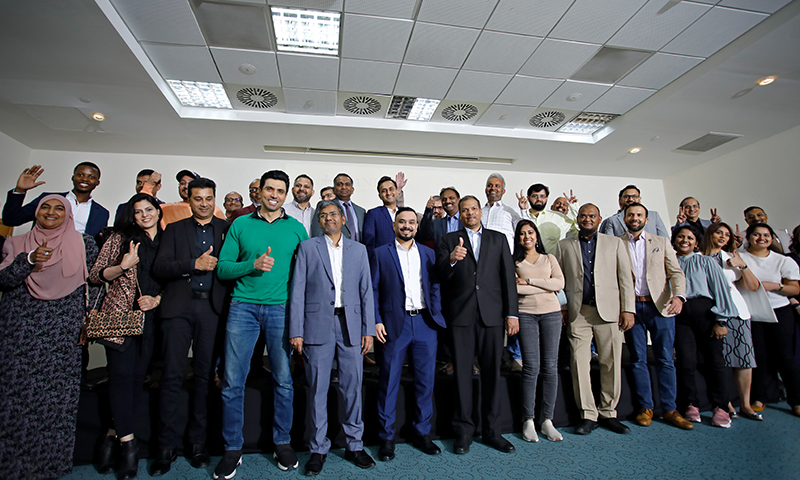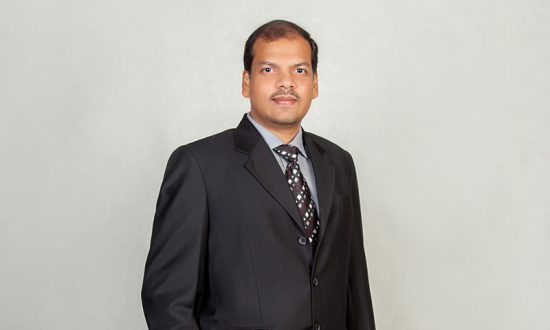Dr Chinmoy Sahu is an accomplished educator. He has been instrumental in creating globally disruptive learning opportunities in the higher education industry over the past two and half decades. Widely recognized for his contributions, he has also been featured in the global list of ‘uLektz Wall of Fame’ as “Top 50 Thought Leaders in Higher Education”.
Dr Chinmoy holds a PhD in Business Administration and has been duly certified by Harvard Business Publishing for “Teaching with Cases Online”. His areas of research are in learning technology, corporate finance, financial reporting, and financial markets. Dr Sahu’s work has been widely published in international scholarly journals. He is the Vice Chancellor of Manipal GlobalNxt University and is based in Kuala Lumpur, Malaysia.
Recently, in an exclusive interview with Higher Education Digest, Dr. Sahu shared his insights on some of the changes that have occurred in the higher education sector over the last 5 years, his vision as the Vice Chancellor of Manipal GlobalNxt University, the key initiatives taken by the University to enable technology-enabled learning, and much more. The following excerpts are taken from the interview.
You have so many years of experience in the field of education and academics. How do you see the changes which have taken place in the higher education sector over the last 5 years?
Education, like many other areas, has beyond doubt undergone significant transformation in the last few years. The pandemic has forced the entire sector to adopt digital transformation initiatives, that otherwise would have taken decades to percolate as widely as it has recently. At Manipal GlobalNxt University, it has been business as usual considering that we were well ahead of the transformation curve, having pioneered transborder, technology leveraged online learning more than twenty years ago. It was therefore quite heartening, especially for us to witness these changes throughout the globe. We were also approached by many other educational universities with requests to train their staff in adopting the best practices in digital transformation. In that context, I am pleased to note that a lot of institutions benefited from our FCOT program (Faculty Certificate in Online Teaching), which was earlier a closed program for onboarding our internal resources specifically. We strongly believe that the education sector must continuously make concerted efforts to leverage technology while making learning affordable and inclusive for all.
Dr. Sahu, can you tell us about your vision for the university, and how you plan to achieve it?
Our vision has always been to offer world class affordable learning experience that is completely flexible to cater to the needs of learners across geographic boundaries. This precisely echoes the original vision with which we were established 20 years ago as U21Global by the collaborative efforts of some of the top 200 universities of the world back then.
We have been on track to achieve this vision over the last twenty years, making a difference to the lives of 12000+ adult learners from 72 countries. We shall continue the good work by remaining the pioneers in what we do best and at the same time demonstrating the best practices for the rest to follow.

How do you balance the needs and expectations of students, faculty, staff, and external stakeholders?
Stakeholder management deserves due priority for all organizations. Considering the important role of educational institutions like us, in the socio-economic progression of the world at large, it is paramount that expectation alignment among all stakeholders is achieved effectively. Thanks to our basic functional model, we are able to use technology to enable this vital alignment. Whether it’s flexible learning needs of the learner or flexible working requirements of the faculty and staff, technology if used appropriately, can offer a flexible and scalable model to satisfy our varied needs quite effectively. Our growth and success over the last twenty years is a testament to the fact that we have done most of the things right, achieving the fine balance that is required in this process.
As the VC of Manipal GlobalNxt University, what are the challenges do you face and how do you overcome them?
Challenges are always welcome, as they allow us to demonstrate our core strengths and create opportunities to shift to a higher growth trajectory in the process. In the pre-pandemic days, the major challenge used to revolve around how to make our prospective stakeholders realize the true benefits of online learning. Post-pandemic, there are a plethora of options available in that space. However, not all options available to learners are truly authentic and may not adhere to the basic quality norms that are so critical in online learning. Therefore, the challenge now is to educate stakeholders in being able to discern the good from the ordinary options.
The other challenge is the regulatory support internationally for online learning. While countries like Malaysia have been very proactive in recognizing the importance of online learning, regulations in many countries are yet to keep pace with the changing realities and preferences of learners and their employing organizations. We really need some consistency in global regulatory perspectives to avoid sending the wrong signals unintentionally.

How does your university approach diversity, equity, and inclusion, both within the student body and among faculty and staff?
I am pleased to share that our current full-time staff composition can proudly boast of having 80 percent female employees. Similarly, our current student base represents 56 countries, and our faculty is spread across the world as well. What is even more noteworthy is that we have achieved this diversity without even consciously attempting to do anything specific in that direction. This tells us that if our organizational model is unrestrictive and we work towards democratizing learning without any discrimination then diversity, equity and inclusivity are bound to follow.
Manipal GlobalNxt University is passionate about technology-enabled learning. Tell us about the key initiatives the University has taken in this direction.
That’s right, we are very passionate about technology-enabled learning, having pioneered into online learning when not many were seriously looking at this space at all.
When we started twenty years ago, we couldn’t even find an off-the-shelf Learning Management System (LMS) that could meet the needs of a fully online University like ours. We therefore had to build our own customized LMS using a dedicated team of software engineers. Today, post-pandemic however, we do find LMSs which can support a fully online learning environment. This has eased our efforts considerably in maintaining captive systems and therefore now we can focus on our core function of offering effective learning opportunities.
We continue to leverage technology to create asynchronous learning opportunities that break barriers such as time zones, thereby making social learning achieve its true potential. We have also adopted AI based interventions within our LMS such as sending automated alerts and notifications based on different trigger points. Using AI to deliver customized content and engaging learning experience is also quite transformational to say the least.

What are your suggestions, to integrate quality at all levels of higher education?
Quality is a very important aspect of higher education. There may be several possible connotations of quality. For instance, an institution might have developed a huge physical infrastructure, but quality goes beyond visual appeal. As we all know, during the pandemic, physical infrastructure was thrown completely out of the equation. Quality has to be embedded deep within the mindset of all stakeholders to make it a reality. It goes without saying that quality needs to be an obsession right from the point a stakeholder makes the first contact and all the way till the final interaction.
What are your views on leadership? How should university vice-chancellors and administrators ensure that their faculty members and students transform into world-class leaders?
Leadership is about empowering all the stakeholders if we are to develop an army of world-class leaders. Many educational institutions still follow a very tall organizational structure when the world is moving to a flat structure for a reason. Many believe that empowerment can be ensured regardless of the structure, but in my view a flat structure makes the task much easier. Having said that, academic leadership needs a lot of attention to foster the right talent at the right time.
How does your university collaborate with other institutions or organizations, both locally and globally, to achieve shared goals or address shared challenges?
We do collaborate with other institutions to create opportunities for collaborative research as well as faculty and student mobility. Some of our recent pathways offer opportunities for mobility to Germany and France. Similarly, many students from other Institutions across the world take some of our elective subjects for a specific term since we are able to offer a wider choice of 40+ electives every term and the credits are accepted by their home institutions quite seamlessly. We are actively looking to create more such opportunities for different stakeholders. Collaboration is all set to gain further significance in the new post-pandemic world order.
What would be your advice to Ph.D. students and early-stage researchers looking to pursue career opportunities, especially from Asia?
My first piece of advice to doctoral students is to develop a passion for in-depth study and not simply enroll into a PhD program for the sake of getting the privilege of using the “Dr” prefix. Secondly, doctoral students must chase their interest and not get unduly confused by others’ opinion in the early stages. I usually get approached by a number of students who get confused with the topic of their thesis, for instance. Matching their interest with the research gaps in existing literature is often the right approach to this problem. Finally, we must realize that qualitative research can be as powerful as quantitative research and it all depends on the selected research problem. Recent advances in big data analytics and Artificial Intelligence provide a great levelling field in both types of research, making mixed mode quite popular as well.




